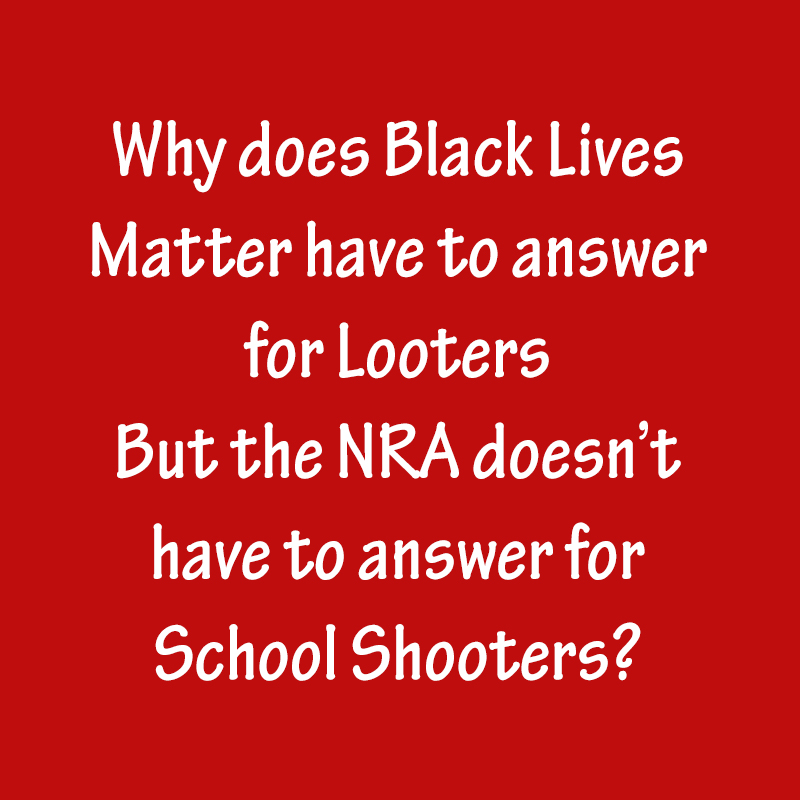
One Day. That's All I Ask.

And In That Same Vein As The Previous Post…
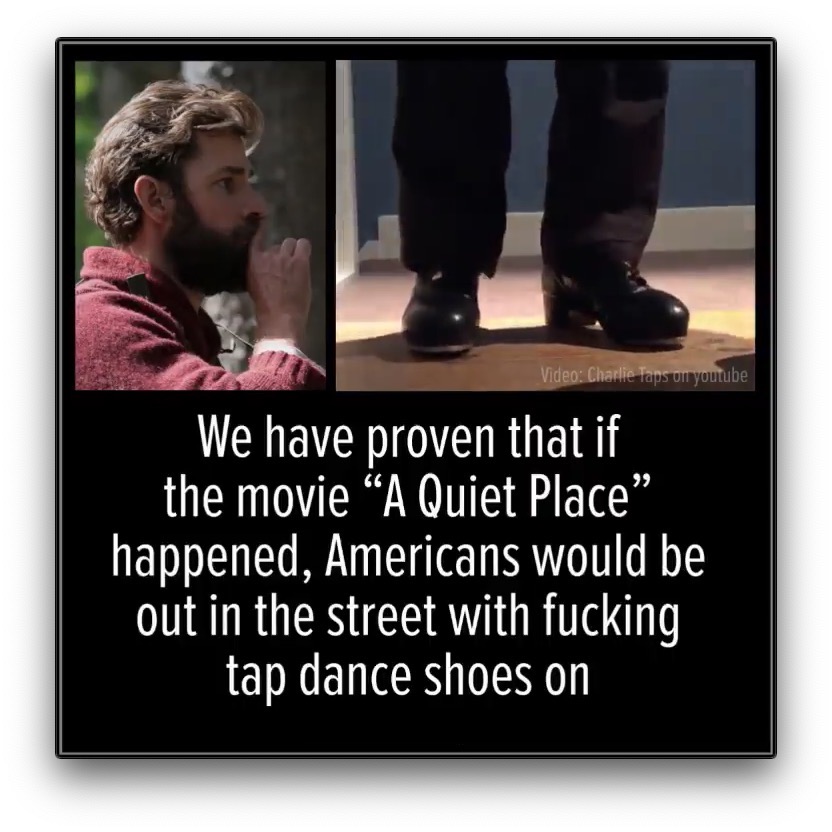
#truth
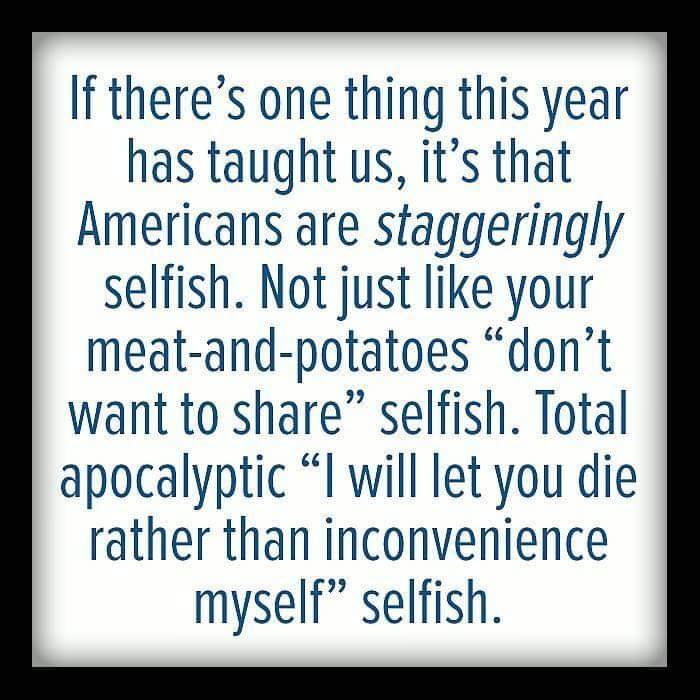

As Miranda Would Say, "Groundbreaking!"

OR…to get that semen smell off your breath after you've serviced one of the many "straight god-fearing christian" men who frequent the joint.
Uh Huh.
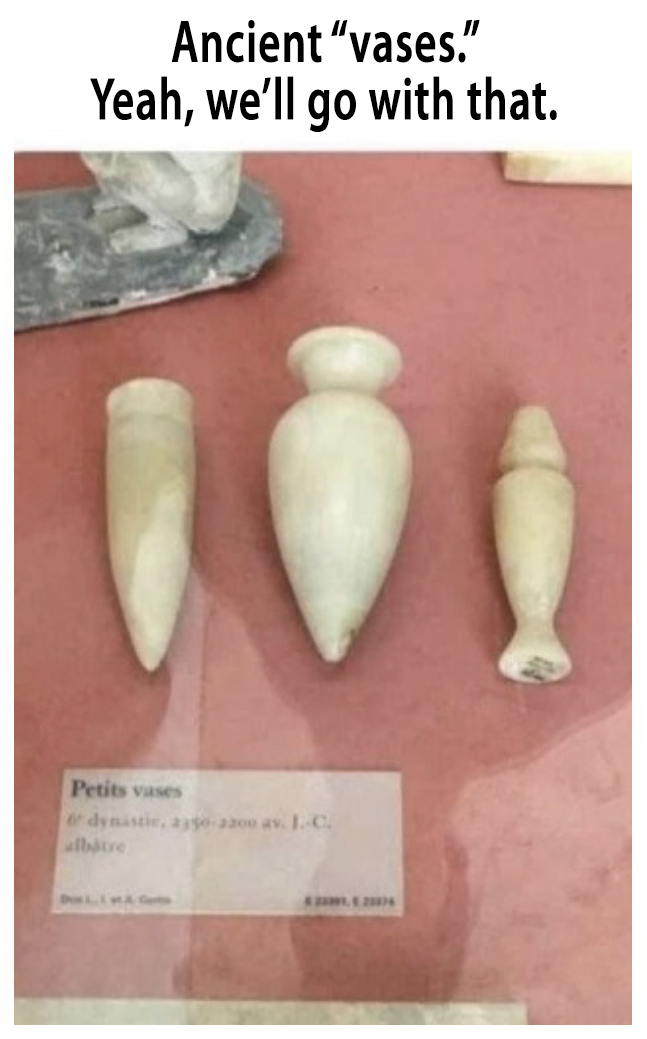
"It was custom to have the deceased's favorite vessels buried within the body in the pelvic area."
We're Right There With Ya, Eric!
I don't say this lightly: when we escape this Trump hell, America needs a Presidential Crimes Commission. It should be made up of independent prosecutors who look at those who enabled a corrupt president. Example 1: Sabotaging the mail to win an election. #SaveThePostOffice
— Rep. Eric Swalwell (@RepSwalwell) August 14, 2020
I Don't Think…
…that phrase means what you think it means, dude.

Without your military-style penis extender, you're just a frightened little boy spewing trash talk from your mom's basement.
This Gives Me Hope

This photo gives me hope for this country, something that has been sorely lacking from my life for the last four years.
I Don't Know How…
I don't know how I did not have this album in some format in my collection, but I didn't—until yesterday.

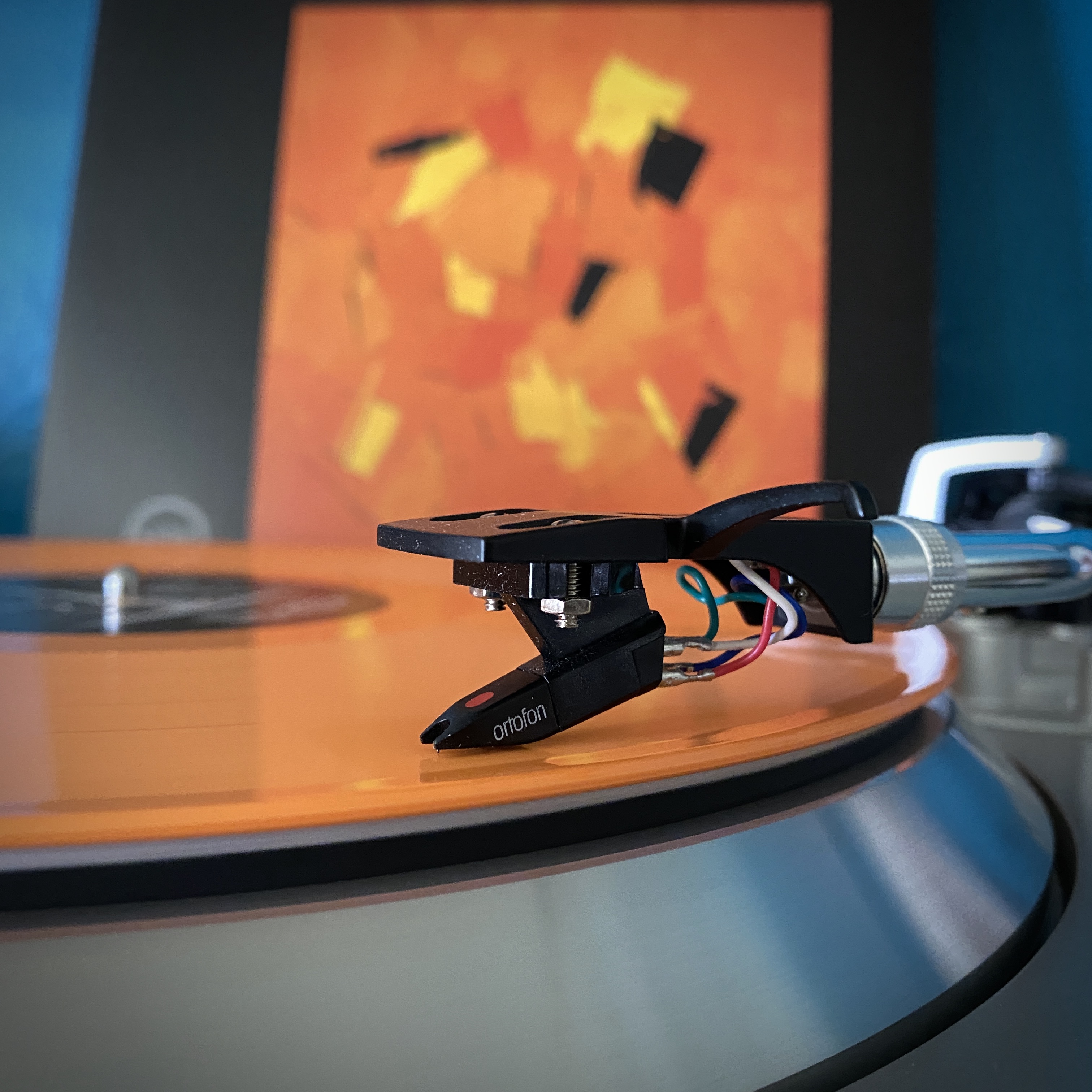
This is a new pressing, a reissue from 2018 that I got here.
The vinyl is flawless. The space between the cuts is absolutely silent. This is one of those records that my new JBLs were meant for.
Initially I had some misgivings about dropping the amount of coin I did on those JBLs, but after living with the L166s for a week and slowly making my way through my vinyl collection, they were worth every penny. They make (or rather, I should say allow) good recordings to shine, while bad recordings are revealed not just to be bad, but to be glaringly bad; something I was never even aware of with my old Infinitys.
Oh, But That's Different

Hypocrisy, thy name is Right Wing Assholes.

And at this point I would take that even further by asking if anyone (other than his brain-dead base) gives a shit what Trump himself has to say? Everything that comes out of his piehole is either gibberish or outright lies—sometimes both at the same time.
366 (It's a Leap Year, Boys) Days of UNF: Day 229

Worth Reposting

BAD LIP READING: The Trump Interview
The sad thing is any of his interviews could be "bad lip reading" and we'd never know the difference.
Nick Jonas Does Not Like Underwear


And we're just fine with that….

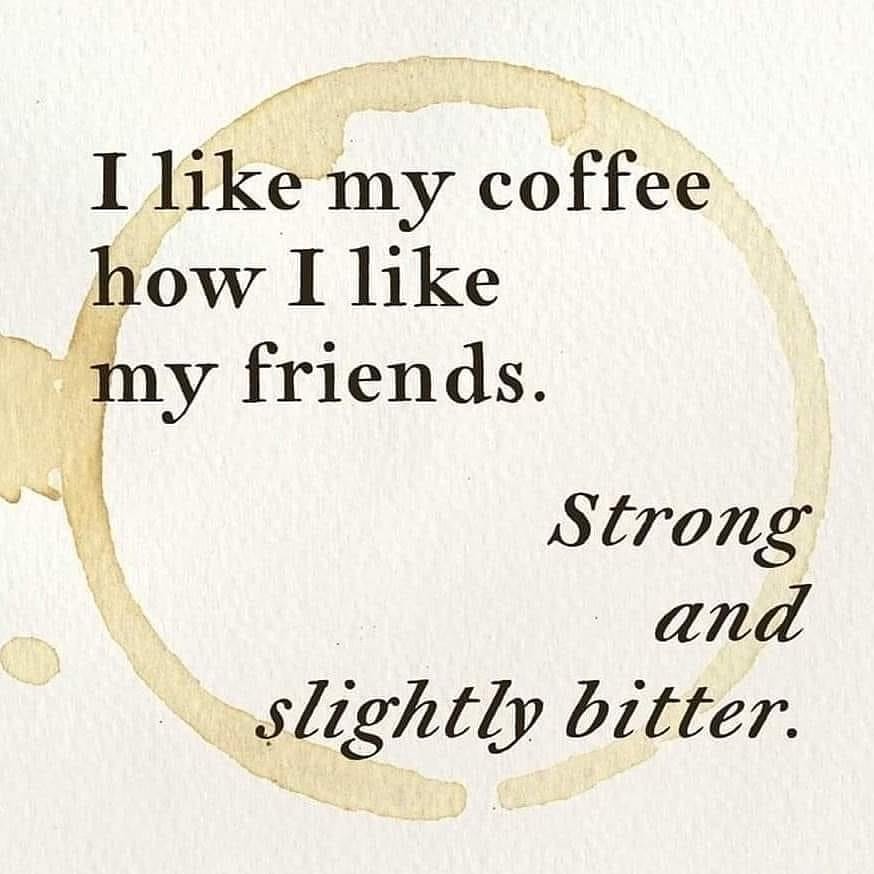
MAKE THIS HAPPEN!

366 (It's a Leap Year, Boys) Days of UNF: Day 228

Discomania
I recently discovered worldradiohistory.com, an absolute treasure trove of high fidelity magazines from back in the day. Besides getting teary-eyed at seeing all the old equipment advertisements and laughing uproariously at reviews that dismissed records now considered classics, it's also been fun running across the very serious articles found in these publications. In that vein of utmost seriousness, I give you…
DISCOMANIA
The hottest item at a rock-'n'-roll convention in New York City several months ago was a tee-shirt bearing an extremely obscene comment on disco. Most rockers just don't take kindly to disco music. They act as though its very existence were a personal affront, and they tell whoever will listen that it is soulless, mechanical, and likely to cause softening of the brain. One frustrated rocker known only as La Lumia has actually organized a nationwide movement called "Death to Disco." He provides buttons and bumper stickers bearing the grisly slogan, plus a manifesto stating his creed. (If you're interested, Mr. La Lumia is available for lectures and rallies.)
And it's not just the rockers who have gone off the deep end on the subject of disco. Jazz purists, too, complain that disco is not only a cheap form of music, but that it has robbed them of fine musicians who have "sold out" their art in crossing over to the greener pastures of commercial success it offers. The complaints come fast and furious: disco wipes out an artist's individuality, mashing his efforts into the pulp of its monotonous sound; disco is fickle and trendy-last night's hot platter is tonight's cold potato; and so on.
Even though it may be true up to a point, complaining is as futile as shaking your fist at a hurricane. Disco is an outgrowth of the times, which are confusing, often depressing, and not likely to change quickly. What disco provides is a little vacation from all that-and it's fun. It tends to be mindless fun, but therein lies its appeal. Its emphasis is on the feet, not the head, and dancing to it is an escape from the heavy burdens of both the day and the decade. Discotheques are glittering little fantasy worlds where elaborate lights and hypnotic music conspire to make every patron the star of his own romantic scenario for a night.
Disco does have its virtues. It has provided a shot of vitamin B12 to the careers of both new and established artists and to a number of small record companies. It has rejuvenated the night life of urban centers, boosted the fashion industry, added a little spice of glamour in places where there was none before, given many their only form of exercise, and probably trebled the income of Arthur Murray Dance Studios throughout the land.
Yes, some jazz artists have sold out for commercial success (hardly a new phenomenon, by the way). But some have simply temporarily gone after the rewards that, sadly, artistic integrity never brought them. Take the case of jazz keyboardist Herbie Hancock, who was ripped into by jazz critics in 1973 for his first patently commercial (and enormously popular) album, "Headhunters." This year he had money in his pockets and the grin of a satisfied man on his face when the same critics who had mourned his loss to jazz were bowled over by his latest release, "VSOP."
Disco has resurrected and similarly rewarded neglected r-&-b performers like Thelma Houston and Loleatta Holloway, who have returned the favor by breathing life into its often rigid form.
 Unfortunately, solo artists whose fame rests solely on disco tend to disappear in the overall crush of heavy orchestration favored by most disco producers. The vocals of Carol Douglas, Silver Convention, and the relentlessly loving Barry White, for instance, are reduced to pre-measured structural blocks slipped into pre-measured holes in assembly -line songs. Occasionally a Vicki Sue Robinson or a Savannah Band will appear with the ability to soar above the formula, but they are the exceptions.
Unfortunately, solo artists whose fame rests solely on disco tend to disappear in the overall crush of heavy orchestration favored by most disco producers. The vocals of Carol Douglas, Silver Convention, and the relentlessly loving Barry White, for instance, are reduced to pre-measured structural blocks slipped into pre-measured holes in assembly -line songs. Occasionally a Vicki Sue Robinson or a Savannah Band will appear with the ability to soar above the formula, but they are the exceptions.
But whether disco music makes your feet tap or your flesh crawl, it's here to stay for a while. As an industry, it grosses four to five billion dollars annually, second only to organized sports in the entertainment field. There are over 11,000 discotheques in the U.S., nearly 1,500 in Europe, and even the Soviet Union, at last report, sports a pair. Thirty-five per cent of the records currently sold in the U.S. are disco oriented, thirty million people listen to them, and approximately fourteen million dancers flock to discotheques every week.
For four days in September, Disco HI, a forum sponsored by the music trade magazine Billboard, brought home the growing clout disco has in all areas of the entertainment business. The panel discussions and exhibits left the impression of a young and booming industry delighted with its success and groping for a formula to insure it. Artists, producers, record -company representatives, club owners, disc jockeys, and equipment manufacturers participated, and some of the news they imparted was pretty impressive. If you thought disco was just an urban phenomenon, think again. Mobile discos have been bringing joy to hundreds of pairs of suburban and rural feet. The mobile units are equipped with sound systems, portable lighting equipment, and sometimes even with portable dance floors and smoke machines. Usually rented by schools, charitable organizations, and such, the units can set up a functional, parking -lot disco in nothing flat. The exhibit areas at Disco III featured other eye-opening developments. Many clubs employ the very latest in modern electronics, and the advanced sound systems, the astonishing array of lighting equipment, and the matter-of-fact use of holography, lasers, and large -screen TV projections were all but mind -boggling. Top disco acts (Gloria Gaynor, Tavares, and the SalSoul Orchestra, among others) provided entertainment each evening, and the four-day affair culminated in an awards dinner as boringly predictable as any tedious organizational function you can imagine. One high point (if one can call it that) of the awards ceremony was singer Grace Jones' acceptance of the Most Promising Female Vocalist plaque while her purse was being stolen from her seat on the dais six feet from where she stood. The incontestable low point was the seemingly endless parade of disc jockeys accepting awards (there must have been at least one platter handler from each state in the union).
In short, disco is not about to go away, so you might as well give in, dress up, and accept Irving Berlin's invitation to "face the music and dance." Who knows-you might just get to like it.
DECEMBER 1977
366 (It's a Leap Year, Boys) Days of UNF: Day 227

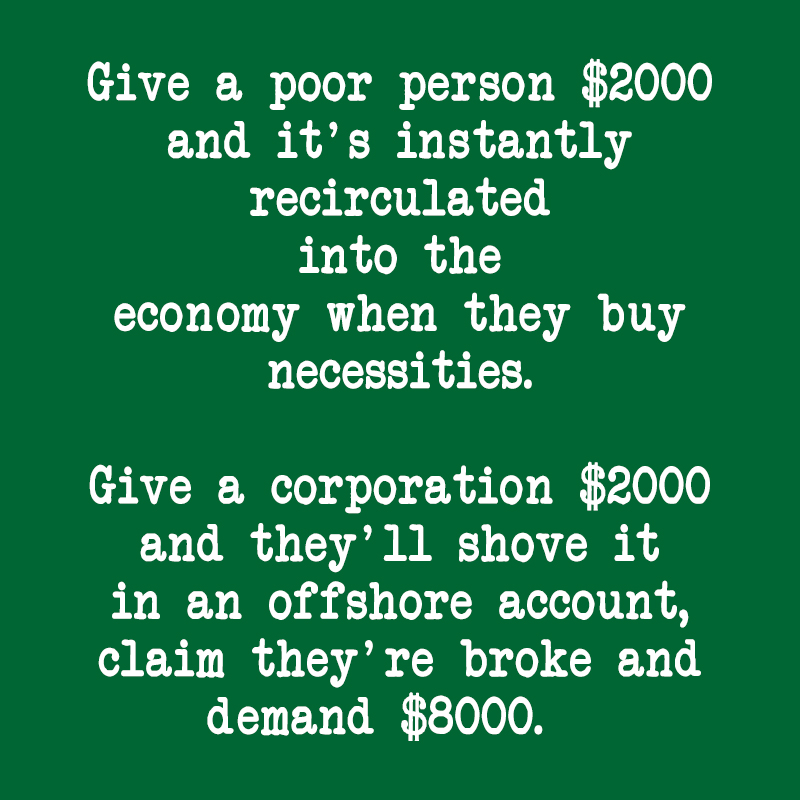
I Know I'm Preaching to the Choir Here, But…
Voting To Do List
- Check if you are registered to vote
- Register to vote if you have not
- Check your voter registration deadline (You should register by early September to receive a ballot on time)
- Request your ballot by October
- Send in your ballot by October 20th at the latest so it is received by election day!!!!!!!
- If you miss mail in voting, check your local polling location for election day
~☆Go Vote☆~
Oh Sah-NAP!
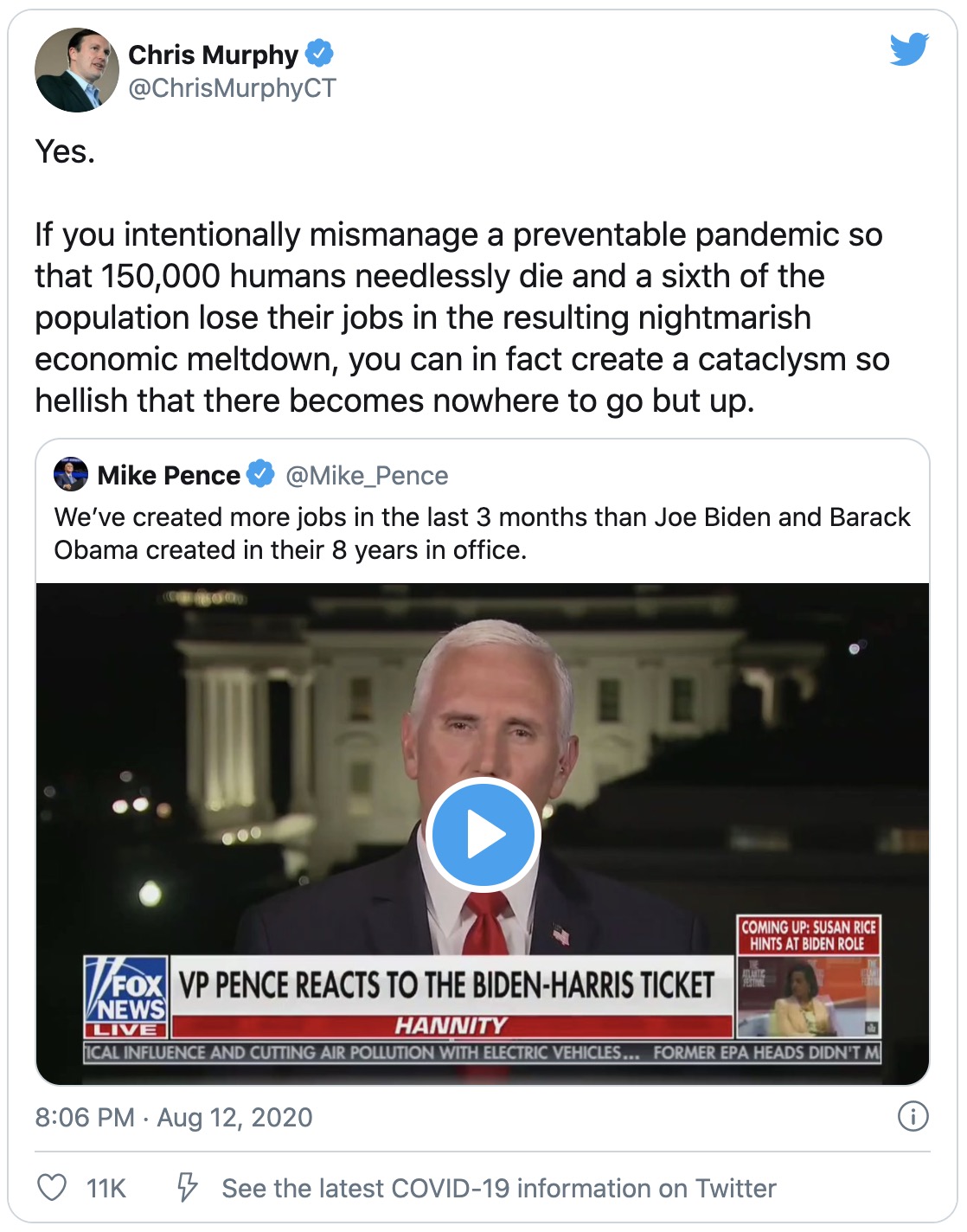
If you want to hear Michael Elizabeth Pence's pie hole make sounds (for some reason this didn't want to embed correctly), here's the link to Murphy's original tweet.
366 (It's a Leap Year, Boys) Days of UNF: Day 226 (NSFW)

Crossover Idea
Supernatural and Criminal Minds.
Just sayin'.
Americans Need to Get Out of This Abusive Relationship
From John Pavlovitz:
It's heartbreaking to see someone you love in a toxic relationship: watching them be continually torn down and berated, treated with complete disregard, humiliated publicly over and over again—and knowing that despite how much damage has been inflicted, they will likely stay with their abuser, to their own detriment.
There is a unique kind of helplessness when a human being is so blinded by their past hopes about what the other person would become, that they can't see what they actually are presently; when they are so consumed with the story they've told themselves about the heart of their partner, that no amount of evidence to the contrary will be enough to convince them otherwise.
They will be lied to and gaslit and injured—and still they will fiercely defend the object of their misplaced affections; perhaps because they do not see their own worth and imagine they will not find better, or because fear has paralyzed them into inaction, or because living this way for so long has left them unable to see another possibility.
When they are confronted by the efforts of well-meaning people, they will deny and rationalize and even lash out at the very suggestion that they are being manipulated, rather than face the possibility that they have been fooled by someone they misjudged and trusted. It is exhausting to try and help them extricate themselves from their own hearts, to show them how unhealthy this place is, to wake them up to their greater value.
Nearly 40 percent of this nation is in an abusive relationship with this President and they are the only ones who cannot see it.
He has complete contempt for them and yet they passionately defend him. They cut ties with those who attempt to reach them with the evidence of his betrayal. Though they are being daily devalued and damaged, they cannot see it through the intoxicating romantic haze of their Fox News, Evangelical, Great America back stories. They see those of us who oppose him as the enemy, when the truth is we care far more about them than he ever will—which is why we have to show up in November and help them see what they cannot right now.
This election is the chance for the sixty percent of us to rescue these people from this bitter codependence; to vote them into a safer and more stable place; to show them what it could be like if they were led by someone who actually cares for their well being, who actually works to strengthen the bonds between them and the people around them, who will not subject them to a continual toxic flood of intimidation in order to keep them close and retain their affections.
Whenever someone finds their way out of an abusive relationship, you watch them blossom: you see them embrace the wide-open life that has always been waiting for them, and they get to see themselves and the world with new eyes. Like a mighty Phoenix rising from the suffocating ashes of something that was far less than they deserved, their spirits are reborn—and they wonder how they ever let themselves be treated as anything less than beautiful. They find real freedom.
I so want these people around me to experience this, for them and for the America that I share with them. We all deserve far better than the oppressive, violent, fractured place we now live in, and until they see that we're stuck here.
The best of who we could be as a nation is not possible while they are tethered to something so destructive and injurious, and the greatest gift we can give them is to save them from themselves.
That's what's at stake in this election: everything.
366 (It's a Leap Year, Boys) Days of UNF: Day 225

